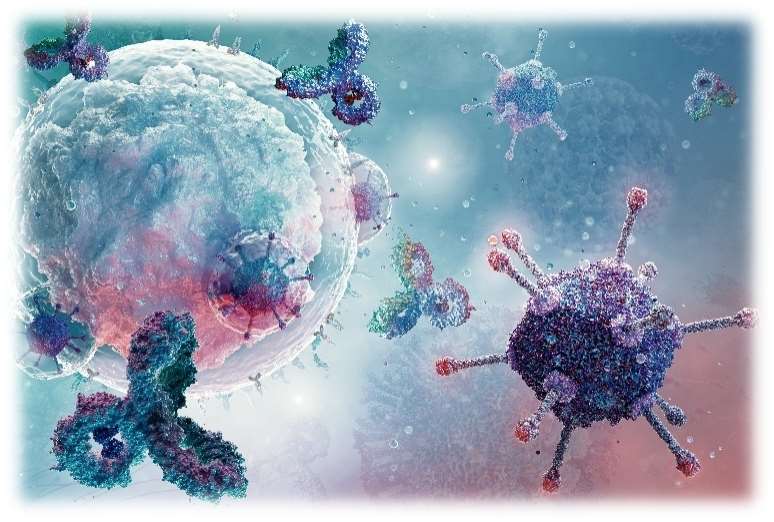Lipidomics for Immune Disease Research

Immune diseases have a complex pathogenesis and are often the result of a combination of mechanisms. Abnormalities in lipid metabolism can affect inter- and intracellular signaling as well as immune response regulatory processes. There is evidence that lipid metabolism may be closely related to the development of immune disease research.
Functional lipids, represented by sphingolipids, are involved in energy metabolism and building cytoplasmic membrane structures in living organisms. In addition, they have a wide range of biological activities, such as the regulation of cell proliferation, differentiation, intracellular communication and migration, intercellular (or extracellular) signaling, transport of membrane structures, autophagy and apoptosis. The biological activity of lipid compounds has become a hot research topic in recent years.
Abnormal lipid metabolism is involved in metabolic, immune regulation and inflammation processes, and is closely related to the occurrence and progression of many diseases. With the development of mass spectrometry technology, especially liquid chromatography coupled with mass spectrometry, the structural information of lipid compounds has been more revealed and their structure-function relationship has been better interpreted.
Creative Proteomics provides customized lipidomics solutions to analyze lipid profiles in different samples, screen for differentially expressed lipids, identify and quantify target lipids, and facilitate research on potential mechanisms of immune diseases, early diagnosis and drug efficacy.
Featured Services
Technology Platform for Lipidomics Service
Creative Proteomics designs experimental protocols based on customer needs and selects different technical methods to improve assay efficiency and ensure the accuracy and reproducibility of results.
Based on LC-MS/MS technology to simultaneously analyze hundreds of different lipids in biological samples to obtain more information. Through bioinformatics data analysis, we can systematically elucidate the variation at the lipidome level and the regulatory mechanisms in the experimental group compared to the control group from a lipid perspective.
Targeting specific lipid molecules and their metabolites in samples. Based on high-resolution mass spectrometry and isotope internal standard, we use parallel reaction monitoring (PRM) targeted analysis technology, which can realize the specific acquisition of signals of multiple lipid molecules (such as dozens of target lipid molecules) at the same time, and obtain their absolute contents to meet the needs of targeted detection and verification of target lipids. Using Orbitrap mass analyzer and ultra-high resolution mass spectrometry, high quality data can be obtained. Sensitivity up to ppm level and linearity range up to 5-6 orders of magnitude.
Advantages of Lipidomics Services
- Experience in sample pre-treatment, capable of handling a wide range of biofluid, tissue and cell samples
- Multi-isotope internal standard calibration, including QC and other multiple quality control systems to make the quantitative more accurate
- Professional team testing and analysis. Automated operation through computer programs
- Suitable for complex matrices, more metabolite and metabolic network information can be obtained in a single test
- Professional data analysis, able to perform PCA, OPLS-DA, T-test and other analysis on the data
How We Work in 7 Easy Steps

If you have any questions about our lipidomics services for immune disease research, please contact us.
* Our services can only be used for research purposes and Not for clinical use.



